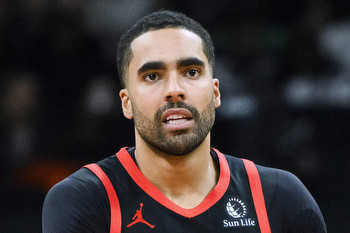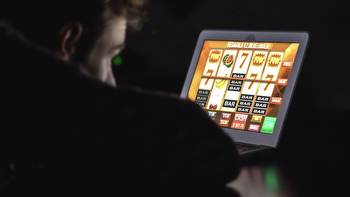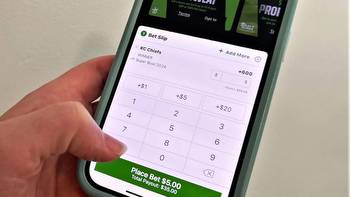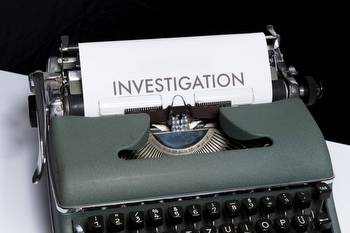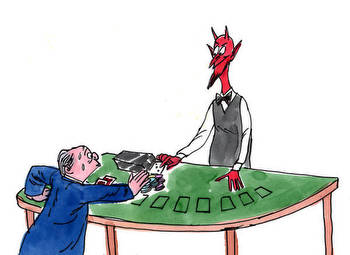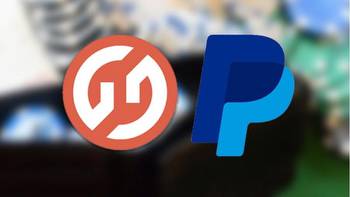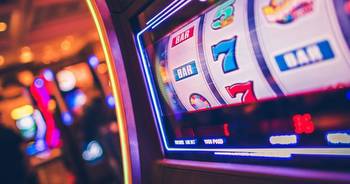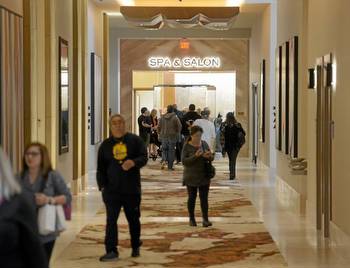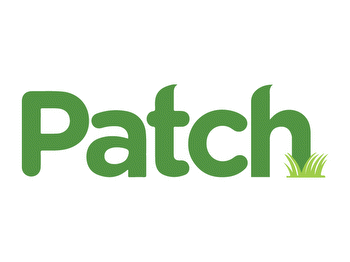March Madness breaking records with $15.5 billion in bets, driving crazy rise in gambling addiction
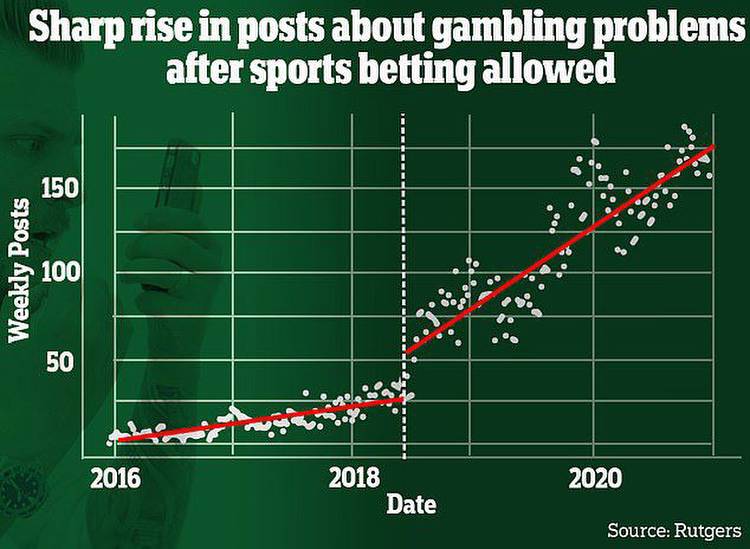
A record-breaking quarter of American adults are set to bet some $15.5 billion on this year's March Madness college basketball contest — the latest sign of a fast-growing market that's fuelling a tripling of addiction rates.
The American Gaming Association (AGA), an industry body, says 68 million adults are expected to place bets this year, a sharp rise on the 45 million people who wagered $3.1 billion on last year's extravaganza.
The AGA says ever more Americans are enjoying legal sports betting markets that have been rolled out across 33 states and Washington, DC, since a Supreme Court decision in 2018. Three more markets are set to launch soon.
Many of them are first-time bettors, says the group. Of those using the mobile apps or websites run by such firms as FanDuel and DraftKings that have taken America by storm, three quarters will be newbies.
States have pocketed some $2.6 billion in new gambling tax revenues since the law changed, but critics warn of rising addiction rates and a flood of bankruptcies, broken homes and even suicides down the road.
'The US Supreme Court has turned America into one big casino,' Jim Martin, a former regent of Colorado University, said in a warning about the NCAA Tournament betting frenzy in The Denver Post.
'We are in the middle of the largest and fastest expansion of legal gambling in the nation's history, which is quite possibly, as some say, the next opioid crisis.'
Michigan's gambling control board this month launched a 'Don't Regret the Bet' campaign to urge residents to keep their gambling under control during March Madness, the country's biggest annual betting event.
Recovered gambling addicts and researchers warn that sports betting firms often target college students as they lure new users to cell phone betting apps that then hook them on roulette, slots, and other compulsive games.
They spoke of a multibillion-dollar industry using data scientists to attract users with an array of well-timed freebies and rewards that sees them enter credit card numbers and start blowing hundreds of dollars in minutes.
One researcher warned of a 'time bomb' of gambling misery that will detonate in the not-too-distant future, even as lawmakers look the other way, loosen restrictions further and collect the windfall tax revenues.
A Supreme Court decision in 2018 opened the door to legalizing the billions of dollars that Americans wagered illegally on professional and amateur sports each year — often through illicit bookies or offshore gambling houses.
Since the Professional and Amateur Sports Protection Act was struck down, 36 states and Washington DC have legalized sports betting, typically for adults aged 21 and over, says the AGA, an industry body.
Even so, Americans still bet more than $510 billion on the black market each year, denying states tax revenues, the AGA says.
A Washington Post-University of Maryland poll showed that two-thirds of Americans supported legal sports betting last year — up from 55 percent in 2017, before the Supreme Court decision.
Now, folks in states with legalized sports betting can try their luck with Caesars, WynnBET, BetRivers, DraftKings and other big sportsbooks that advertise prominently at games, on television and — controversially — on college campuses.
The market is booming. Casinos and mobile gaming apps rang up a record $54.93 billion in revenue during the first 11 months of 2022, a 13.5 percent increase against the same period the previous year, says the AGA.
Among the states that allow sports betting, 23 permit online wagers.
Sports betting firms often also run online casinos, meaning newbies can sign up to wager $20 on a March Madness game but then get sucked into playing slots, roulette and blackjack in the same apps on their phones.
That's the real problem, says Matt Zarb-Cousin, 32, a recovered addict and entrepreneur, who says betting firms are dangerously adept at rooting out new gamblers, especially young men, and getting them hooked.
'Some states that don't even have casinos are legalizing sports betting, and people are accessing casino products for the first time on their smartphones or iPads, where it's much easier to lose a lot of money, very quickly,' said Zarb-Cousin.
Newcomers typically receive 'free' credit for their first sports bets, and later receive push notifications about winning complimentary spins on a digital roulette wheel or other breadcrumbs toward the in-app casino.
All the while, third party data warehouses build up profiles of clients, including their salary and demographic details, offering them bonuses and rewards that keep them opening up the app until their habit is formed, he added.
The thrill from old-fashioned gambling is still there: punters describe the rush of excitement, the adrenaline kick of a slot machine's bonus round, the hope of an elusive big win, and the desire to recoup losses.
But with apps, users don't have to travel to a brick-and-mortar casino; the phone is always there, sitting in their pocket.
A 2021 study by the National Council on Problem Gambling (NCPG) showed that some 25.5 million adults had taken up sports and internet gambling since the law changed in 2018.
In that time, the number of gamblers who begged and borrowed to repay debts, lied about their addiction or felt restless or irritable when they were not having a flutter rose sharply.
Younger adults and those wagering on sports or fantasy teams saw bigger increases in problematic gambling behavior.
NCPG data suggest 6-8 million Americans have a gambling problem, which costs taxpayers $7 billion each year from the resulting bankruptcies, healthcare and criminal justice costs.
Jeffrey Derevensky, a gambling professor at McGill University, says the lack of comprehensive federal studies masks a 'time bomb' of addiction that's yet to explode.
'This is an enormous social psychology experiment,' said Derevensky.
'We'll only know the true impact in the next five to seven years … more bankruptcies, more criminal behavior, and more suicide attempts.'
There are already warning signs.
New Jersey, home to one of America's longest-established betting industries, saw calls to its gambling helpline triple from 2018 to 27,000 last year, a state watchdog told DailyMail.com.
A Rutgers study last year found the number of people posting about problematic gambling on Reddit grew five times faster following the introduction of legal sports betting in 2018.
'When you increase access, you increase the number of people hurt,' said Mark van der Maas, the assistant professor who led the study, likening gambling to cannabis and alcohol.
He called for federal research into gambling and more treatment schemes for addicts.
Zarb-Cousin suggests lower caps on the amount of money gamblers can lose in a session. He founded Gamban, a technology that blocks gambling apps and sites across all a single user's devices, to help them kick the habit.
Derevensky suggests raising the minimum gambling age to 25 and lecturing schoolkids on the pitfalls of gambling, mimicking similar campaigns on drugs and booze.
Still, he worries that politicians rely too much on betting tax revenues to effectively oversee the lucrative industry.
States pocketed a record $1.5 billion in gambling tax revenues last year and have collected $2.6 billion since the law changed in 2018, according to Sports Handle, which monitors the betting market.
'All you have to do is follow the money, said Derevensky.
'The group that's most addicted to gambling is the government.'








